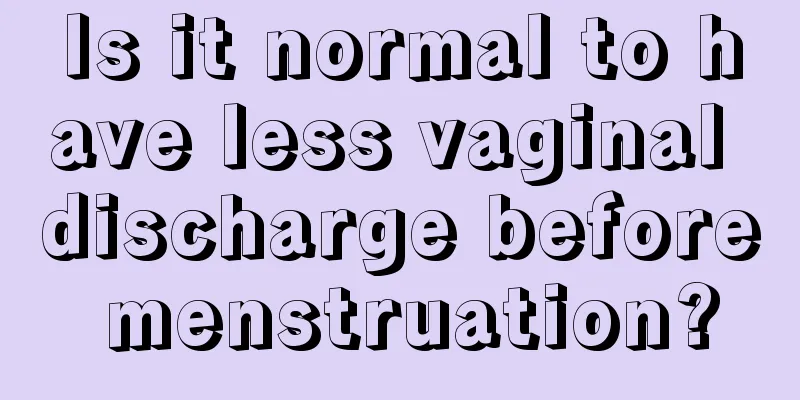What are the specific causes of external hemorrhoids?

|
We know that hemorrhoids are generally divided into two types: external hemorrhoids and internal hemorrhoids. As the name suggests, one is hemorrhoids growing outside and the other is growing inside. So what are the specific causes of external hemorrhoids? 1. Anatomical reasons: When a person is standing or sitting, the anus and rectum are located at the lower part. Due to gravity and the compression of internal organs, the upward venous return is greatly hindered. The rectal veins and their branches lack venous valves, and the blood is not easy to return and is prone to congestion. The blood vessels are arranged in a special way and pass through the muscle layer at different heights. They are easily compressed by feces, affecting blood return. The veins also pass through the loose tissue of the submucosal layer and lack stent fixation around them, making them prone to expansion and buckling. 2. Genetic relationship: The venous wall is congenitally weak, with reduced resistance, and cannot withstand the pressure within the blood vessels, thus gradually expanding. 3. Occupational relationship: People standing or sitting for long periods of time, carrying heavy loads for long periods of time, can affect venous return, slow down blood flow in the pelvis and cause congestion of abdominal organs, causing excessive filling of the hemorrhoidal veins, decreased tension of the venous walls, and easy congestion and dilation of the blood vessels. Insufficient exercise, reduced intestinal peristalsis, slow downward movement of feces, or habitual constipation can compress and stimulate the veins, causing local congestion and blood reflux disorders, increasing pressure in the hemorrhoidal veins, and reducing resistance of the venous walls. 4. Local irritation and improper diet: Exposure of the anus to cold or heat, constipation, diarrhea, excessive drinking and eating spicy food can all irritate the anus and rectum, causing congestion of the hemorrhoidal venous plexus, affecting venous blood return and resulting in a decrease in the resistance of the venous wall. 5. Increased anal venous pressure: Cirrhosis, liver congestion and incomplete compensation of cardiac function can all cause anal vein congestion and increased pressure, affecting rectal venous blood return. 6. Increased intra-abdominal pressure: Intra-abdominal tumors, uterine tumors, ovarian tumors, prostate hypertrophy, pregnancy, overeating or squatting on the toilet for too long can all increase the intra-abdominal pressure and hinder the venous blood return. 7. Anal infection: The hemorrhoidal venous plexus first becomes inflamed due to acute or chronic infection, and the elastic tissue of the venous wall gradually becomes fibrotic and weakened, resulting in insufficient resistance, which leads to enlargement and varicose veins. Combined with other reasons, the varicose veins gradually worsen and form hemorrhoids. |
<<: Let me show you what are the strong alkaline fruits
>>: What foods can make you have an alkaline constitution?
Recommend
Is it painful for women to remove the IUD?
The purpose of having an IUD inserted is to bette...
These drugs are no longer available and have been recalled! Check if you have any
Notice from the State Drug Administration on 22 b...
Why does my vagina hurt when I'm pregnant?
Women are really very strong, especially during t...
How did Zhacai come about? Who invented it? What is Zhacai made of?
Zhacai is a type of mustard, generally referring t...
Sometimes there is a sudden pain in the lower body
The female lower body is a key protected area. Si...
Can I eat Hericium erinaceus during menstruation?
Why should women pay great attention to their bod...
What is the cause of bleeding ten days after menstruation?
Many women are particularly worried when they ble...
Women love beauty without 5 methods to eat more soy milk and tofu
1. Delaying Aging Yu Kang, a nutrition expert at ...
After suffering from gynecological tumor, "I have poor sleep and don't want to take medicine! What should I do?"
Due to the physiological characteristics of women...
How much weight is normal during pregnancy
Most women will be treated as treasures by their ...
Does Caesarean section have any effect on the baby?
Cesarean section is a method of childbirth that i...
Menstrual blood is yellowish
Menstruation is basically a physiological phenome...
What should I do if I have a sore throat due to a cold during pregnancy?
Pregnant women cannot take medications during pre...
How long does it take to do a DNA paternity test during pregnancy?
Being pregnant is a happy thing, but for some peo...
What is the role of breast pathology biopsy?
The female breast is a very complex system. In li...









